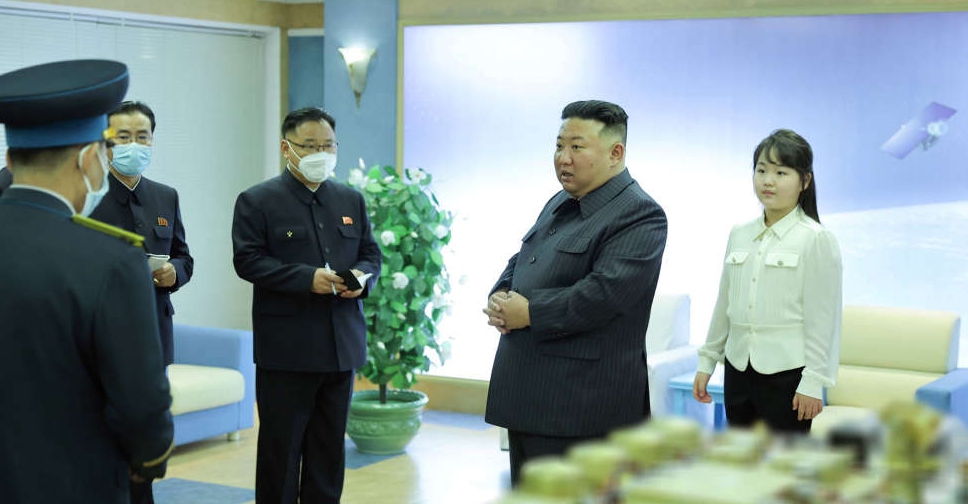
North Korean leader Kim Jong Un has said preparations for the planned launch of the country's first spy satellite should go ahead to counter what he called threats from the United States and South Korea, state media reported on Wednesday.
Analysts say the military satellite is part of the reclusive, nuclear-armed state's efforts to advance surveillance technology, including drones, to improve its ability to strike targets in the event of a conflict.
North Korea in December conducted what it called an important "final phase" test for the spy satellite and said it would complete preparations for the launch by April. At that time, it released grainy black-and-white images of the South Korean capital Seoul, which it said had been taken during the test.
During a visit to the official space agency on Tuesday, Kim told officials to ensure the launch went ahead on time, and also ordered a series of more reconnaissance satellites to be launched, state news agency KCNA said.
KCNA said the satellite production has been completed but it did not elaborate when the launch is scheduled for.
'BREACH OF UN SANCTIONS'
Kim said it was "natural" for the North to develop its military deterrence, criticising deployment of US strategic assets in the region as an attempt "to turn South Korea into an advanced base for aggression and an arsenal for war".
Japan's Chief Cabinet Secretary Hirokazu Matsuno said even if Pyongyang called it a satellite, any North Korean launch involving a ballistic missile technology would be a clear breach of United Nations Security Council resolutions.
A state media photo showed Kim, accompanied by his daughter, talking to officials in front of a blurred image of an apparent satellite.
North Korea has undertaken an array of missile and weapons tests in recent months, most recently a new solid-fuel intercontinental ballistic missile (ICBM). Pyongyang has been threatening "more practical and offensive" action over South Korea-US exercises, and refusing to answer inter-Korean hotlines.
In December, five North Korean drones crossed into South Korea and South Korea responded by sending surveillance aircraft into the North to photograph its military.
Kim Dong-yup, a professor at the University of North Korean Studies, said North Korea wants to use satellites to try and secure real-time information necessary to hit targets when mobilising its missiles and other nuclear delivery systems.
North Korea has had multiple attempts to launch "earth observation" satellites, of which two appeared to have been successfully placed in orbit, including the latest in 2016.
International observers have said the satellite seemed to be under control, but there was lingering debate over whether it had sent any transmissions.

 UK inquiry finds 'chilling' cover-up of infected blood scandal
UK inquiry finds 'chilling' cover-up of infected blood scandal
 Iranian President Raisi killed in helicopter accident, state media says
Iranian President Raisi killed in helicopter accident, state media says
 ICC prosecutor seeks arrest warrants for Israeli, Hamas leaders
ICC prosecutor seeks arrest warrants for Israeli, Hamas leaders
 Assange given permission to appeal against US extradition
Assange given permission to appeal against US extradition
 Israel intends to broaden Rafah sweep, Defence Minister tells US
Israel intends to broaden Rafah sweep, Defence Minister tells US




